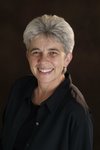 Sarah Lawton, MT-BC, NMT, will bring music to our midst on the second and fourth Wednesdays of each month from 11:30 a.m.—1:00 p.m. As a Board Certified Music Therapist and a Neurologic Music Therapist Fellow, Sarah brings her rich array of techniques designed to assist with recovery from stroke. This approach is something very special! Please contact Rocky Mountain Stroke Association for details at strokecolorado.org or at 303-730-8800.
Sarah Lawton, MT-BC, NMT, will bring music to our midst on the second and fourth Wednesdays of each month from 11:30 a.m.—1:00 p.m. As a Board Certified Music Therapist and a Neurologic Music Therapist Fellow, Sarah brings her rich array of techniques designed to assist with recovery from stroke. This approach is something very special! Please contact Rocky Mountain Stroke Association for details at strokecolorado.org or at 303-730-8800.Did you realize that music is a key component of recovery from a stroke? While music has been used to positively change lives of patients for thousands of years, the use of music as medicine has become as much science as it is art. The field of music therapy no longer aims to just help people to feel better. Instead, the field of neurologic music therapy utilizes evidenced based techniques to maximize recovery. You can benefit from these cutting edge techniques by joining the neurologic music therapy group through the Rocky Mountain Stroke Association. Groups are led by Sarah Lawton, MT-BC, NMT.
Sarah is a trained health care professional who is board certified, and has advanced training in neurologic music therapy. She is also a trained musician, with the ability to sing and play a wide variety of instruments. She has worked
In our group, you can sing and play your way to a better you. Research shows that music accesses unique processes in the brain, giving you a new avenue for your rehabilitation. All groups are interactive and fun. Just like any other therapy, you have to be involved in your own recovery.
Music therapy does not aim to make you a musician, and you do not need any musical experience in order to benefit from neurologic music therapy. The overall goal of neurologic music therapy is to help clients to function better in daily life. A neurologic music therapist is trained in how to use music to effect non-musical brain and behavior.
If you would like to improve your skills in one of the following areas, join us for the neurologic music therapy group:
Initiating speech
Speech intelligibility
Vocal control
Articulation
Rate of speech
Neglect and inattention
Memory
Attention Deficits
Planning, decision making
Endurance
Range of motion
Fine motor skills
Join us on the 2nd and 4th Wednesdays from 11:30am -1pm! See you there.

No comments:
Post a Comment